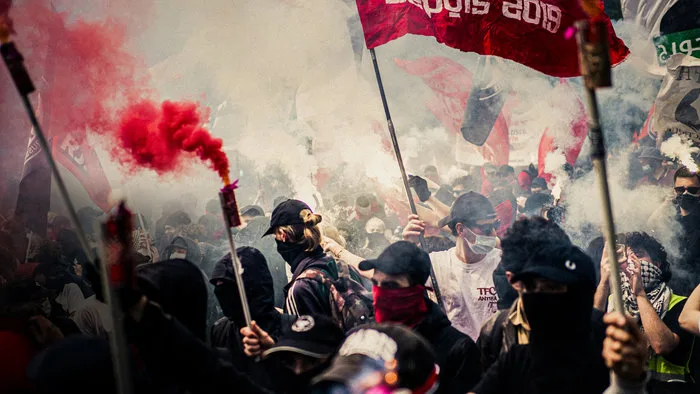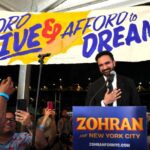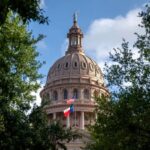By Darlene McCormick Sanchez
With the Trump administration intensifying investigations into the overseas operations and financial networks of far-left extremist group Antifa, debate has sharpened over whether the group should be designated a foreign terrorist organization.
President Donald Trump designated Antifa as a domestic terrorist organization in a Sept. 22 executive order, 12 days after conservative influencer Charlie Kirk was slain at an event at Utah Valley University. The alleged gunman left behind bullet casings with writing on them, including an unspent one that read, “Hey, fascist! Catch!”
The shooting drew fresh attention to the so-called anti-fascist movement and Antifa.
During an Oct. 8 roundtable discussion with journalists who spoke about being assaulted by members of Antifa, Trump reacted favorably when a reporter asked whether it would be appropriate to designate the organization as a foreign terror group, similar to Mexican drug cartels and transnational gangs.
“Let’s get it done,” Trump said.
White House deputy chief of staff Stephen Miller called it a “very valid step” because of Antifa’s foreign ties.
Designating a group as a foreign terrorist organization equips the federal government with greater authority to conduct international investigations, seize assets, and pursue criminal charges, providing more options beyond domestic measures.
Sen. Eric Schmitt (R-Mo.) said he believes that a foreign terrorist designation for Antifa is necessary, and he recently wrote to Secretary of State Marco Rubio about Antifa’s overseas activities.
“They have an international network of safe houses. Antifa is not an idea, it’s an organization,” Schmitt told The Epoch Times.
“I think if we’re serious about taking on political violence … they’re the tip of the spear, so I think it’s absolutely necessary.”
Rubio’s office did not immediately respond to The Epoch Times’ request for comment, citing the ongoing government shutdown.
Antifa ‘Myth’
Critics argue that Trump’s actions against Antifa represent government overreach, as well as sparking a larger debate about using terror designations to address domestic dissent.
Rep. Bennie Thompson (D-Miss.), ranking member of the Committee on Homeland Security, called it a mistake to name Antifa as a domestic terrorist group. Thompson said in a Sept. 22 statement that doing so “serves no purpose other than an excuse for the Trump administration to stifle dissent.”
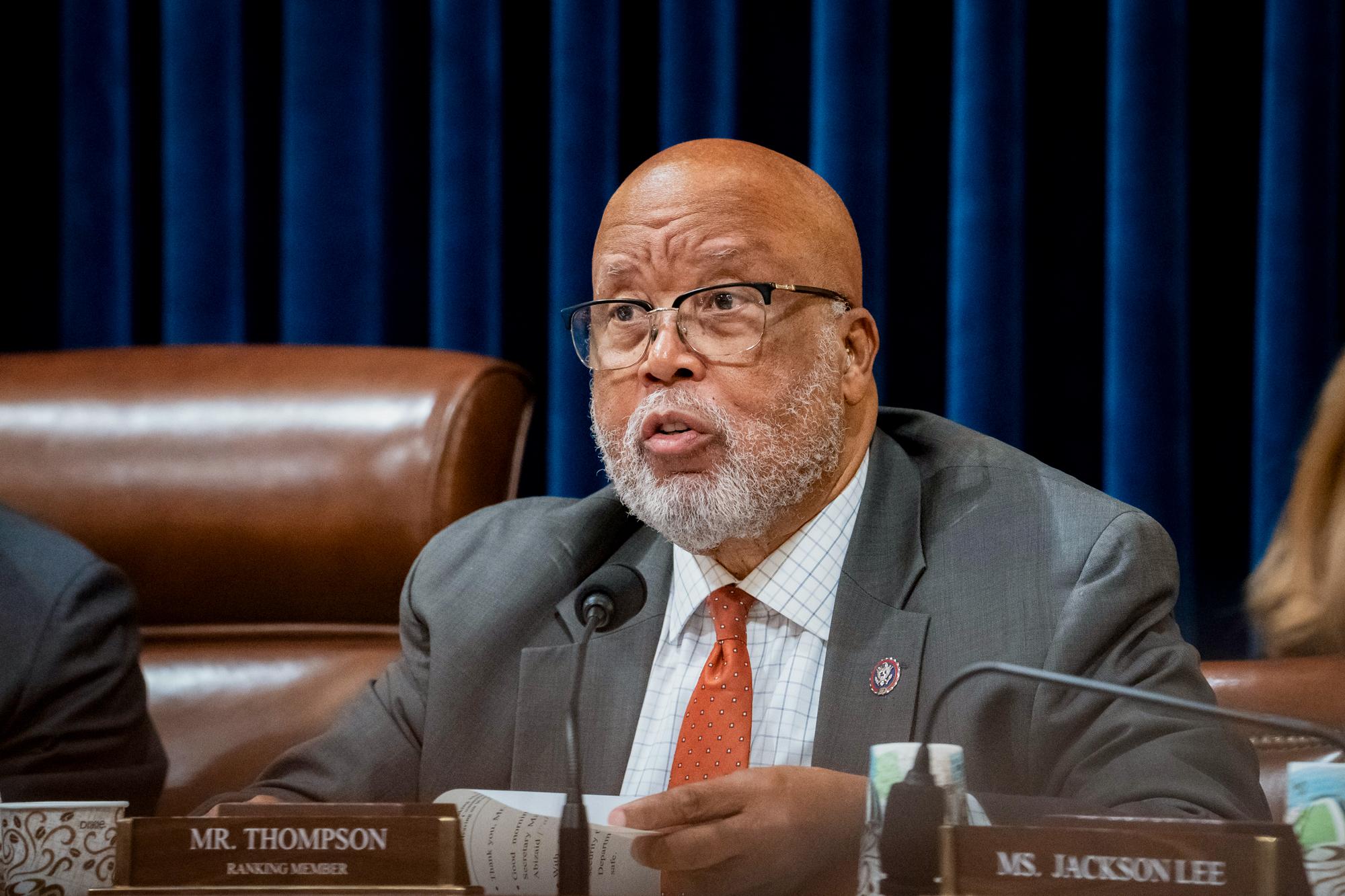
Thompson said labeling Antifa a domestic terrorist group was a mistake and
Some Democrats have downplayed Antifa’s involvement in riots and damage to property, suggesting that Antifa does not exist. In 2020, Rep. Jerry Nadler (D-N.Y.) commented on rioting involving Antifa in Portland, Oregon.
“That’s a myth that’s being spread only in Washington D.C.,” Nadler said in response to a reporter who asked whether the lawmaker disavows the violence by Antifa.
Former FBI Director Christopher Wray, who served under both Trump and President Joe Biden, described Antifa as an “ideology or a movement,” not a centralized organization, during a 2020 congressional hearing.
Rutgers University assistant teaching professor Mark Bray, author of “Antifa: The Anti-Fascist Handbook,” wrote in his book that even as times have changed, Antifa’s commitment “to stamp out fascism by any means necessary” remains intact and connects the movement to its earliest origins.
Antifa originated under the Soviet Union and functioned as the violent wing of Germany’s Communist Party to target political rivals. The group labeled its enemies as “fascists.”
“Only mass antifascism, legal or not, can save us,” Bray wrote on the Bluesky social media platform on Oct. 4.
Antifa members often wear “black bloc,” or all black clothing and masks, to remain anonymous and avoid prosecution for crimes such as vandalism and assault, he said.
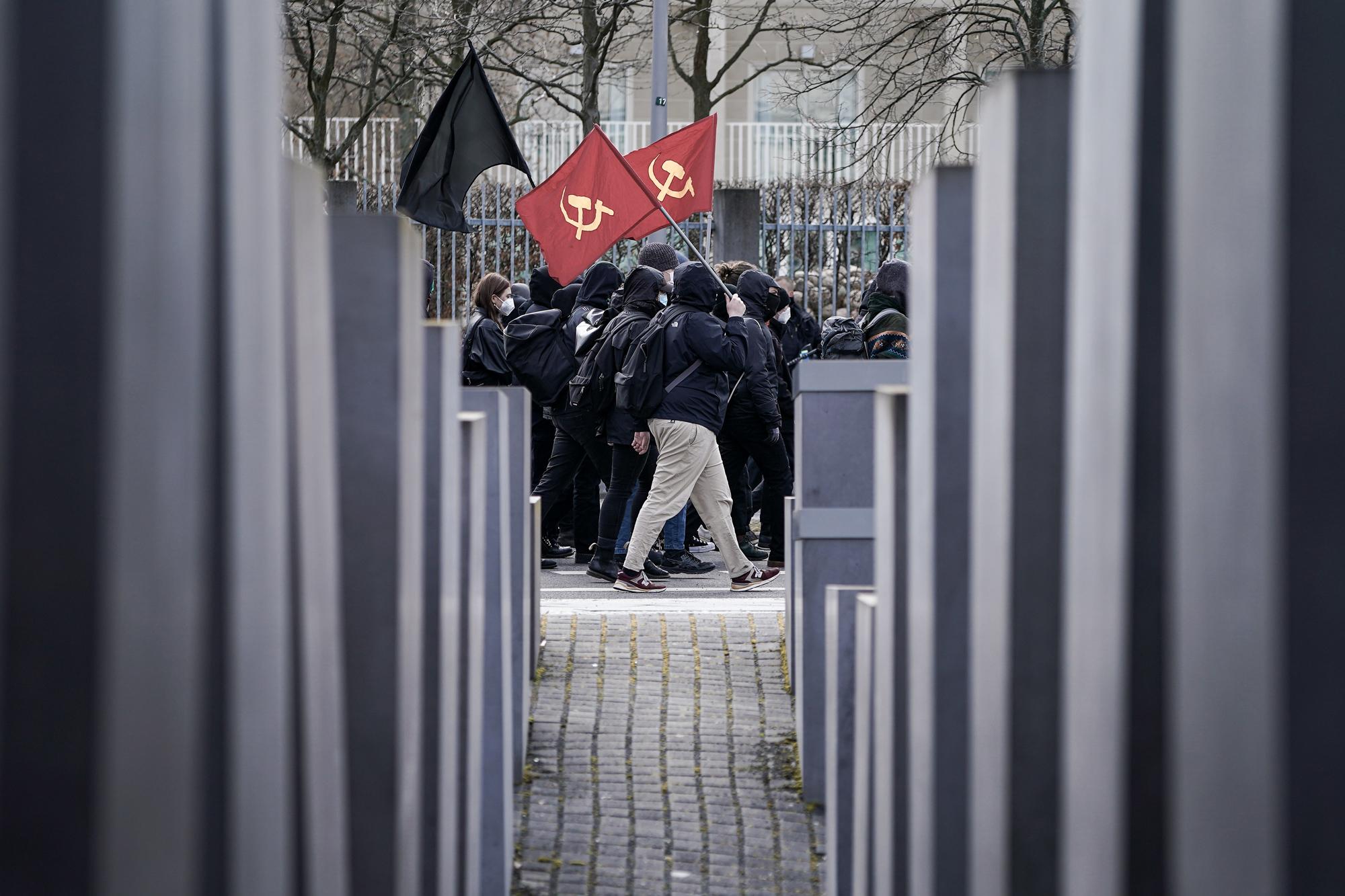
Overseas Operation
In his Oct. 9 letter to Rubio, Schmitt pointed out that Antifa is “not a collection of independent domestic actors” but an international network.
“I write to you today to urge you to designate the foreign networks, organizations, and financiers that enable and support Antifa operations as Foreign Terrorist Organizations,” Schmitt wrote.
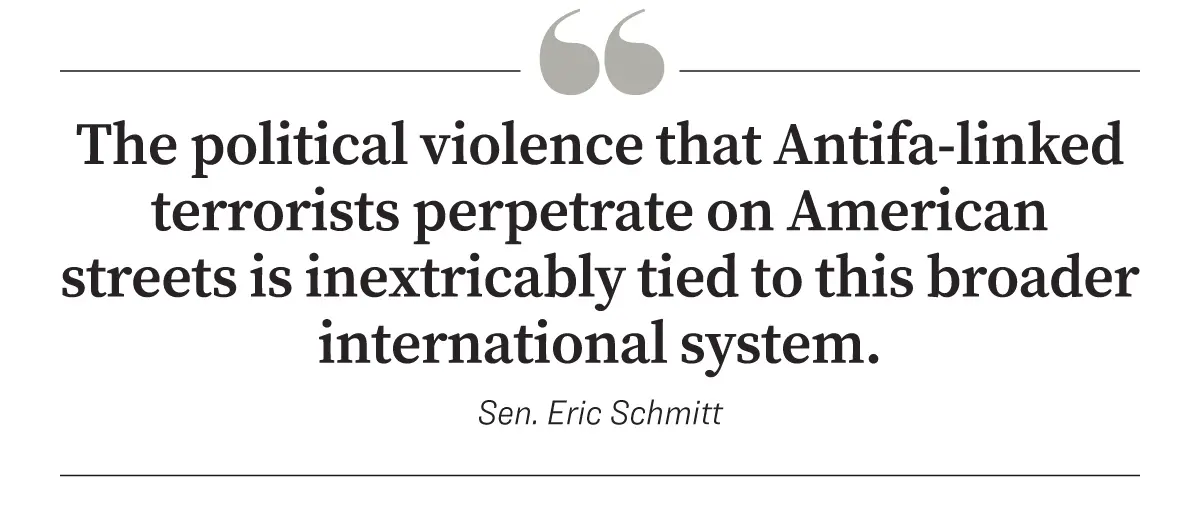
His letter states that Antifa cells appear decentralized but coordinate and share tactics and funding streams.
“The political violence that Antifa-linked terrorists perpetrate on American streets is inextricably tied to this broader international system,” he wrote.
In Canada, a court confirmed ties between Antifa and the Canadian Anti-Hate Network group, according to Schmitt’s letter.
The “Stop Cop City” riots in Atlanta in 2023 also involved international coordination, according to Georgia Attorney General Chris Carr. He told Fox News that some of the militants arrested—who allegedly threw Molotov cocktails, fireworks, and rocks at police—were from France and Canada.
“This is a national, an international group of people that are organized to come to our state to undermine a public safety training center,” Carr said.
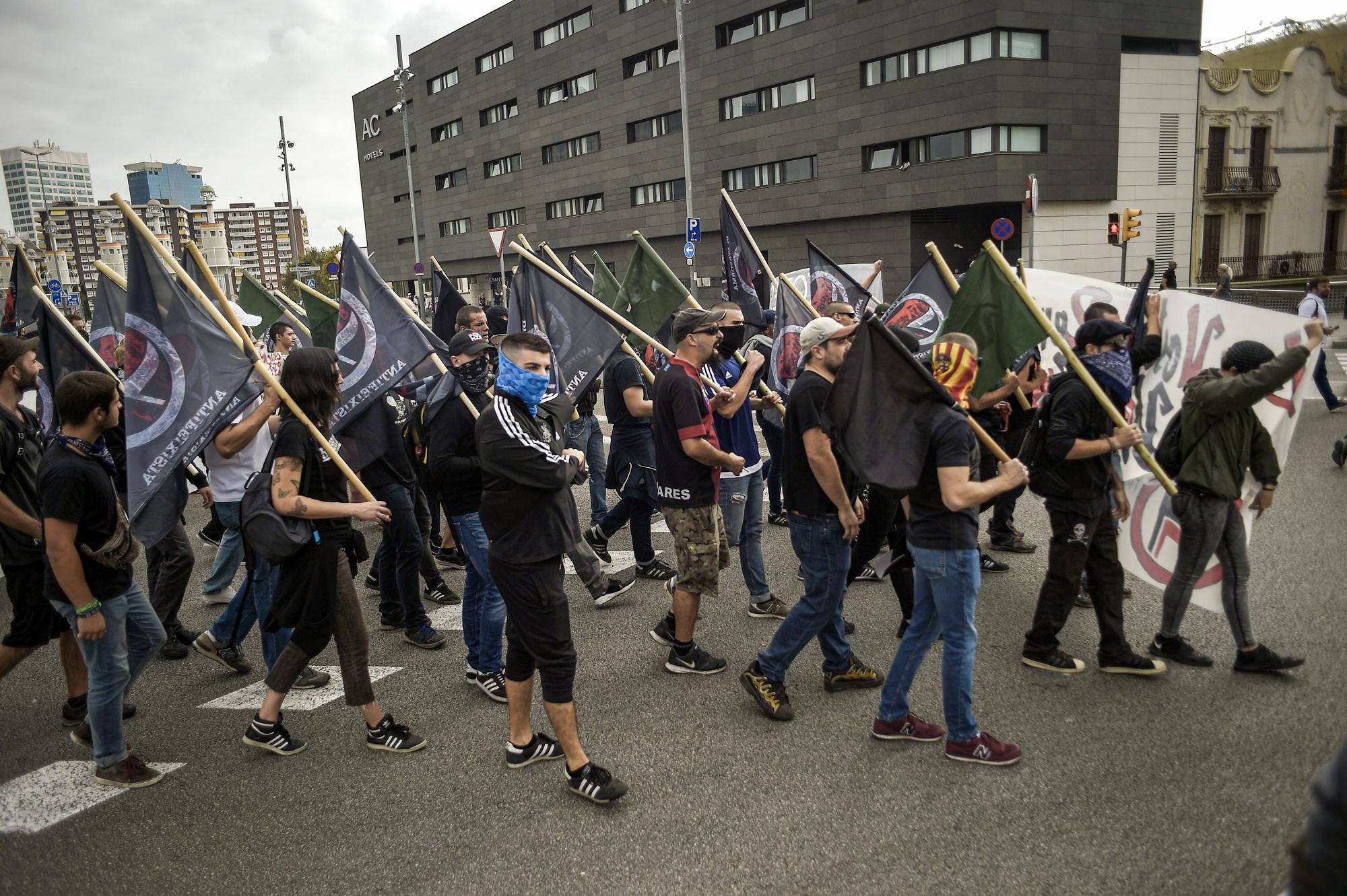
Ammon Blair, intelligence consultant and senior fellow at the Texas Public Policy Foundation’s Secure and Sovereign Texas Initiative, said Trump needs to designate Antifa a foreign terrorist organization in order to dismantle it.
Such a designation allows intelligence agencies to gather information abroad, because those agencies cannot target U.S. citizens domestically, he said. It would also allow the government to cut off funding and material support for terrorism.
Blair said Antifa members and communist groups are agitating for “a color revolution” to destabilize Western countries. Color revolutions use grassroots mobilization, protests, and civil disobedience to topple governments.
“They think the oppression itself is our constitutional republic,” he told The Epoch Times.
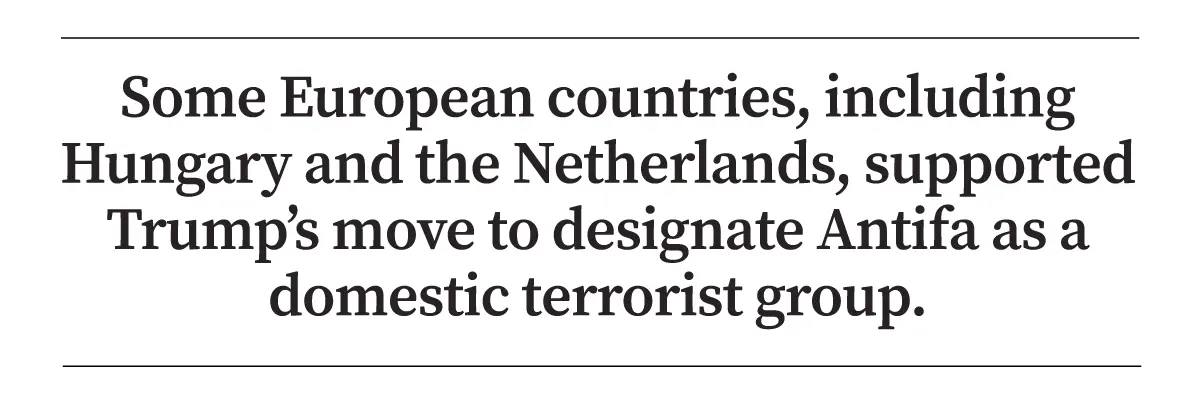
Internationally, militant anti-fascists have been involved in arson, bombings, and assassinations in Latin America and Europe, according to a 2021 report from the Foundation for Defense of Democracies titled “Behind the Black Bloc: An Overview of Militant Anarchism and Anti-Fascism.”
Some European countries, such as Hungary and the Netherlands, supported Trump’s move to designate Antifa as a domestic terrorist group.
Tom Vandendriessche, a Belgian politician and member of the European Parliament, has been an outspoken critic of Antifa in Europe and wants a terrorist designation there as well.
“We must designate Antifa as a terrorist organization, expose its financiers, and dismantle its support networks. [Seventy-nine] Members of the European Parliament support my resolution,” he wrote in an X post this month.
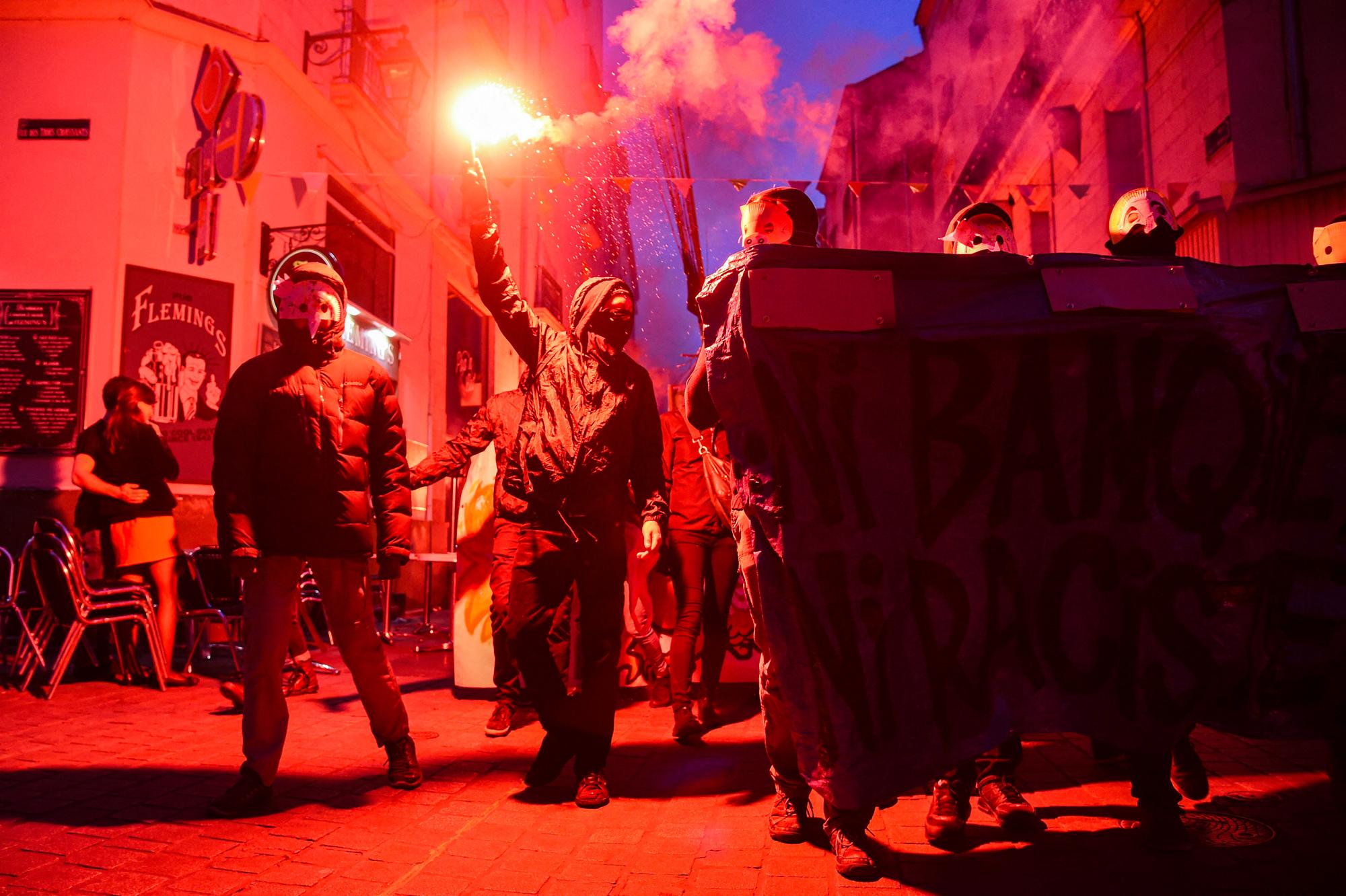
Follow the Money
Blair said funding to Antifa is funneled through nongovernmental organizations and crowdfunding sites, which are harder to track.
“It’s a clever way to mask donations,” he said.
One international funding organization called the International Anti-Fascist Defence Fund (IAFD), a spinoff of Antifa International Collective, stated that it seeks to make funding “accessible to all anti-fascists around the world.”
“Over the last 12 months, we’ve intervened nine times to assist 52 anti-fascists in Finland, France, Germany, the UK, and the US,” the group’s annual report reads.
In a September blog post, the group reported making a donation to “community activists” involved in what officials described as an officer ambush outside a Texas Immigration and Customs Enforcement detention facility in July.
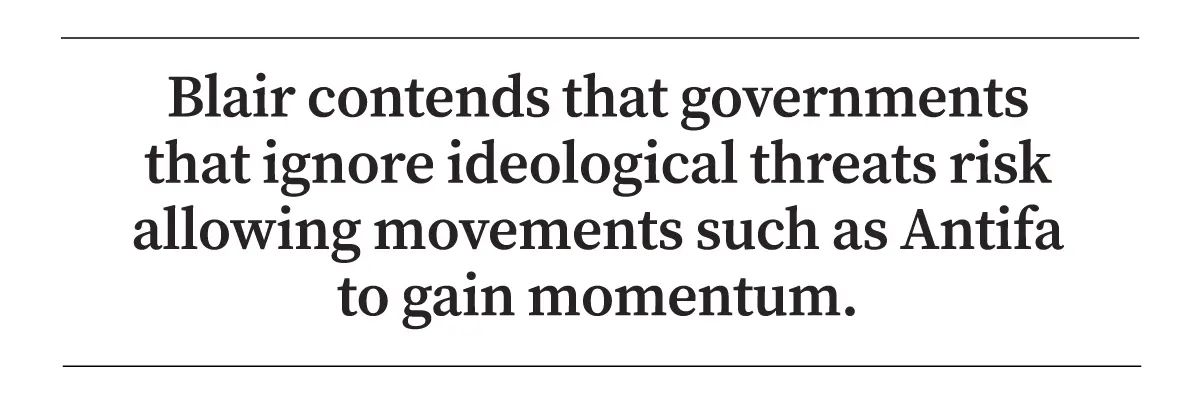
An Alvarado Police Department officer was shot in the neck during the incident but survived.
Ten people were charged with the attempted murder of a police officer. Two alleged members of a Texas Antifa cell were charged with providing material support to terrorists. It marked the first terrorism-related charges brought against people allegedly linked to the network.
IAFD made a $5,050 donation to the GiveSendGo account for protesters at the Texas ICE facility, which has raised more than $45,000 as of Oct. 28.
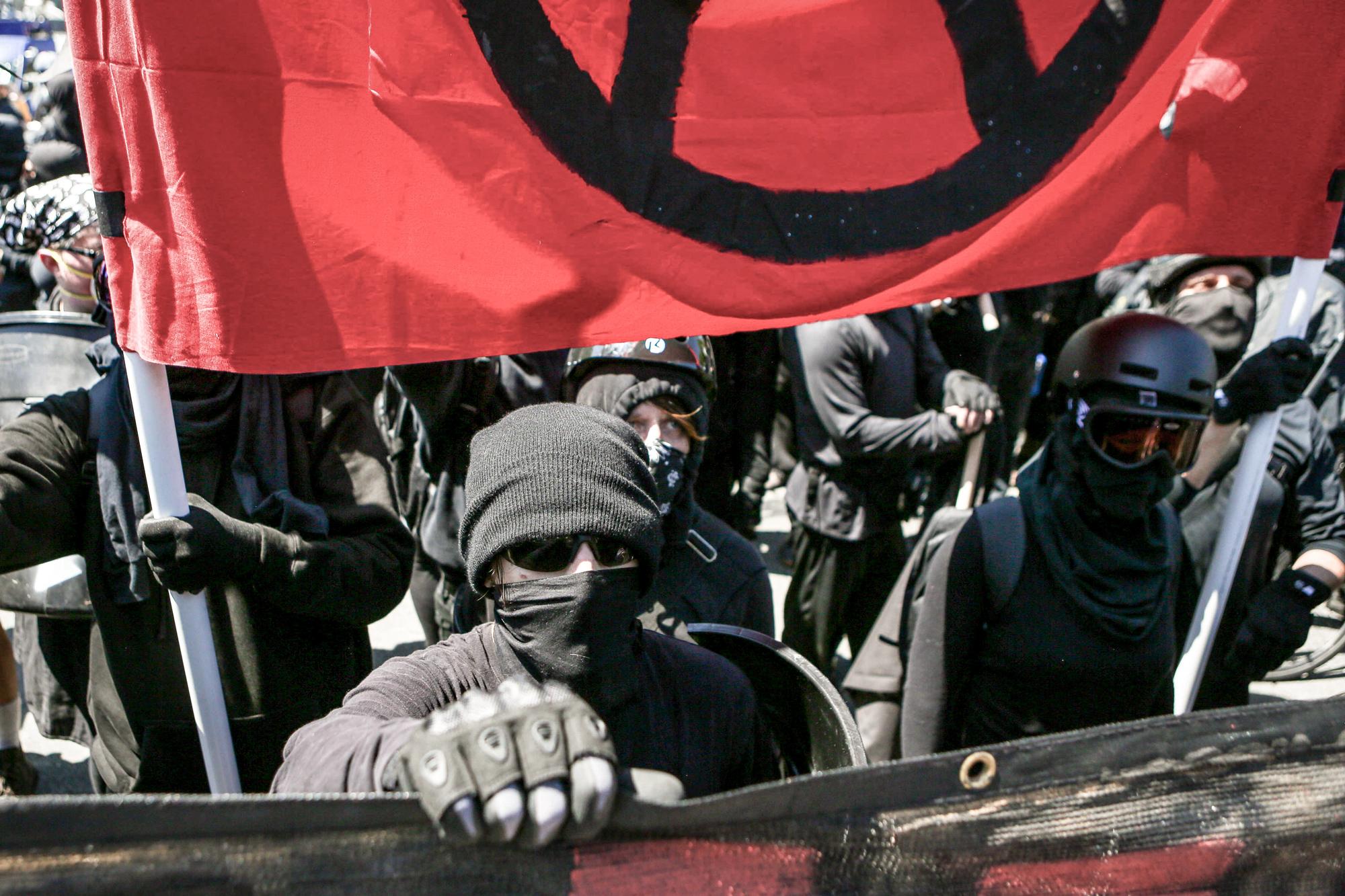
Another active funding group with alleged Antifa ties is Germany’s Red Aid, which German domestic intelligence calls an extremist legal aid group. The group supports people who fight “fascism” and oppose what they consider government oppression.
The group, rooted in the German Communist Party, which was banned by the Nazis in 1933, claims 9,500 members, including anti-fascists. In 2017, Red Aid reported paying more than $441,000 in support for left-wing activists.
Blair contended that governments that ignore ideological threats risk allowing movements such as Antifa to gain momentum.
“Governments almost always act too late against revolutionary movements and insurgencies,” he said.
Nathan Worcester and Janice Hisle contributed to this report.

